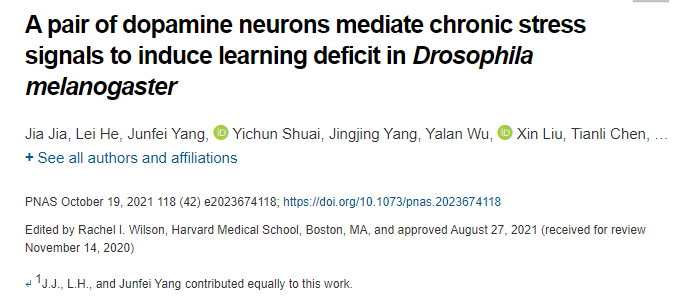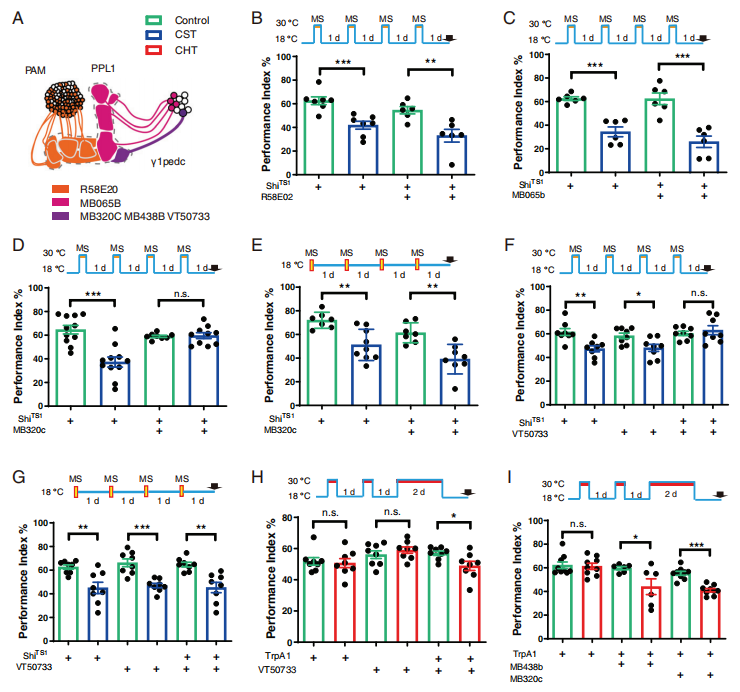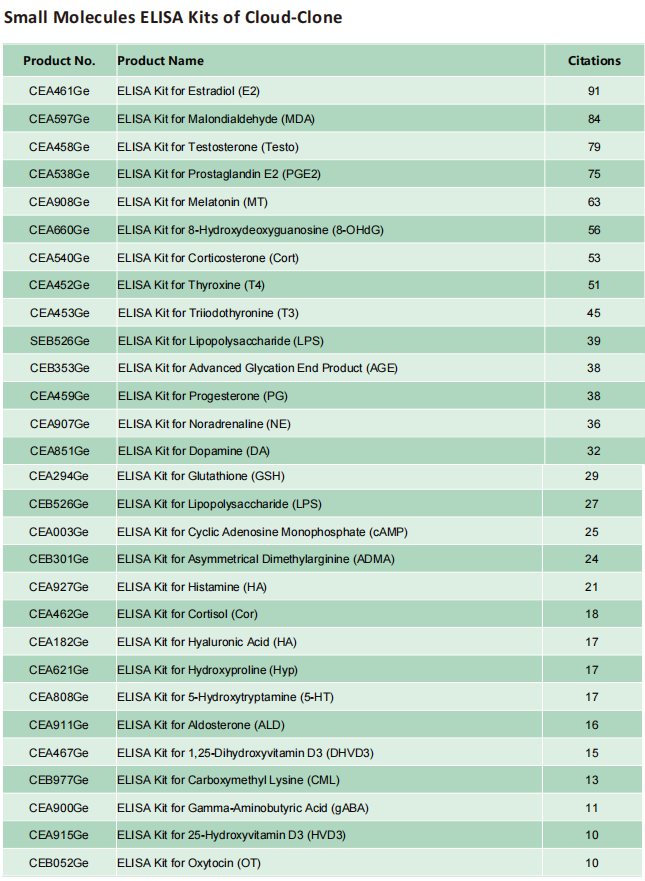A pair of dopamine neurons mediate chronic stress signals to induce learning deficit in Drosophila melanogaster
On October 19, 2021, Hongtao Qin, School of Biology, Hunan University, and his team , published a paper titled "A pair of dopamine neurons mediate chronic stress signals to induce learning deficit in Drosophila melanogaster" on PNAS, which suggested that chronic stress causes dramatic learning and memory deficits in drosophila melanogaster.

The ELISA Kits (ELISA Kit for Dopamine (DA), CEA851Ge) of Cloud-Clone brand was chosed in this article, we are so proud for supporting the reaserchers.

Chronic stress could induce severe cognitive impairments. Despite extensive investigations in mammalian models, the underlying mechanisms remain obscure. Here, we show that chronic stress could induce dramatic learning and memory deficits in Drosophila melanogaster. The chronic stress–induced learning deficit (CSLD) is long lasting and associated with other depression-like behaviors. We demonstrated that excessive dopaminergic activity provokes susceptibility to CSLD. Remarkably, a pair of PPL1-γ1pedc dopaminergic neurons that project to the mushroom body (MB) γ1pedc compartment play a key role in regulating susceptibility to CSLD so that stress-induced PPL1-γ1pedc hyperactivity facilitates the development of CSLD. Consistently, the mushroom body output neurons (MBON) of the γ1pedc compartment, MBON-γ1pedc>α/β neurons, are important for modulating susceptibility to CSLD. Imaging studies showed that dopaminergic activity is necessary to provoke the development of chronic stress-induced maladaptations in the MB network. Together, our data support that PPL1-γ1pedc mediates chronic stress signals to drive allostatic maladaptations in the MB network that lead to CSLD.

Fig. The activity of PPL1-γ1pedc DANs provokes susceptibility to CSLD

